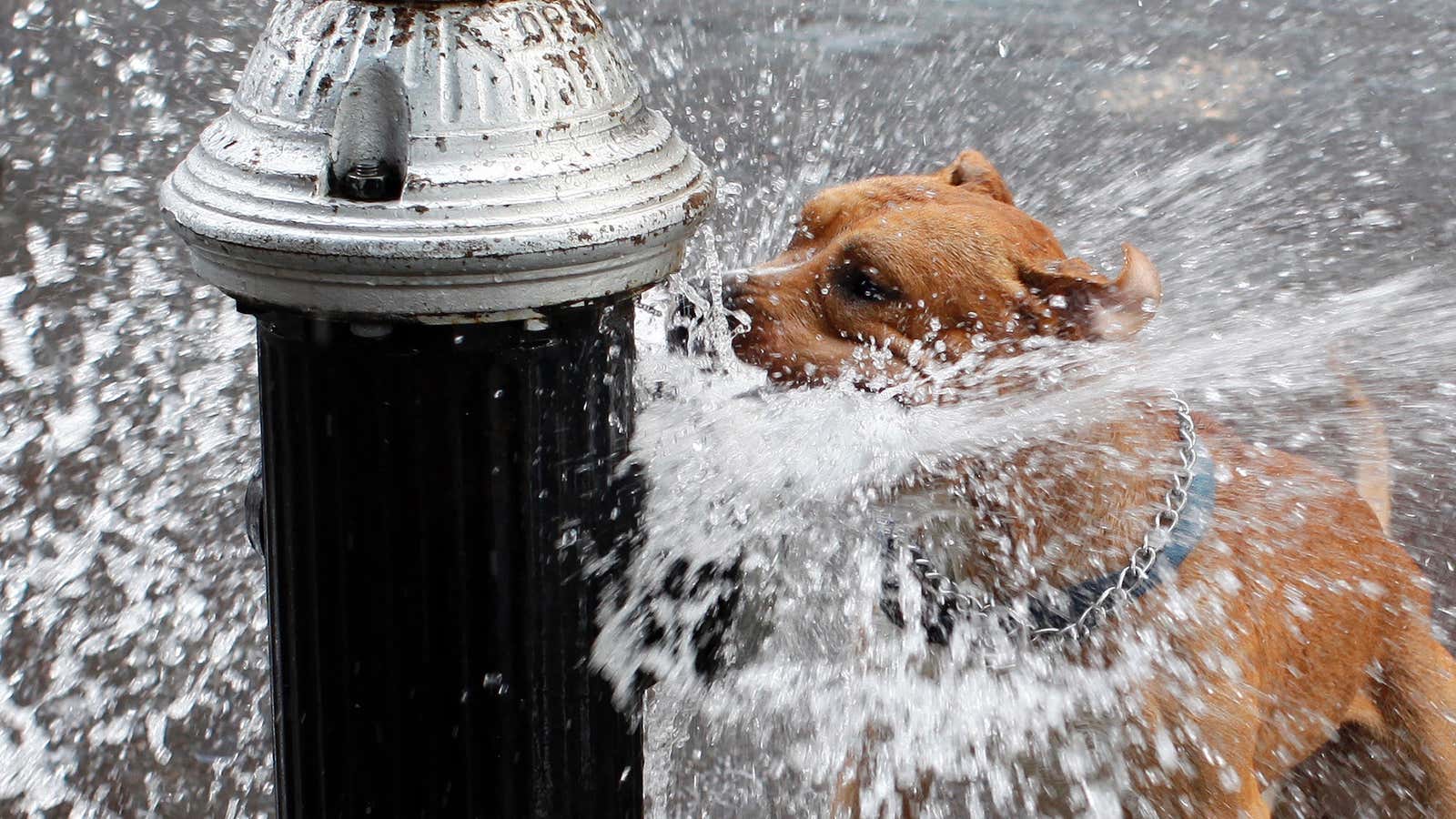The US Marshals Service has work for those with the training and experience to join agents cracking down on dogfighting rings.
The Humane Society of the United States estimates that about 40,000 people in the US are involved in breeding, transporting, and staging dogfights.
The marshals service has issued a request for bids from contractors to provide services in “Northern Florida and mid-west Tennessee.” The April 17 solicitation doesn’t disclose exact locations so as not to reveal where raids will take place and doesn’t state how much it expects to pay. It predicts that 26 dogs will need rescuing.
Separately this week, the agency awarded a $970,000 contract to K2 Solutions of Southern Pines, North Carolina, to transport and care for about 100 pit bulls rescued from dogfighting operations in “Georgia, South Carolina, Alabama, Mississippi, or Florida.” The company says on its website that it offers “threat mitigation and canine detection services for global clients.”
The April 17 bid solicitation—10 densely typed pages–reveals strict requirements. The marshals service has instructions on how to file expenses (“First-class airfare and other upgraded methods of travel will not be reimbursed”), and how to groom and feed dogs, along with guidance on providing witness testimony and reports. Contractors must testify as expert witnesses in court and show they have the requisite experience to qualify as witnesses.
The animals must be cared for throughout any judicial proceedings. Once the cases are over, contractors must also find and screen people to adopt the dogs and euthanize those who aren’t taken in. The government will only pay for 20 days of added care after a case closes and while the adoption process is underway, though a mother and puppies can be billed up to nine additional weeks if needed, according to the contract. (The marshals service acknowledged a Quartz request for comment but did not provide additional details.)
How dogs are handled after fights
Handlers are sometimes needed in cases that aren’t strictly about dogfighting—the FBI or the Drug Enforcement Administration may be cracking down on a drug or gun ring and know that dogs are involved, for example. Once a US Attorney is working on a matter, prosecutors contact the marshals, who put the bid out for dog handlers.
Robert Misseri, founder and president of the Guardians of Rescue dog shelter in Long Island, New York—a central figure in the 2017 Animal Planet series The Guardians—works with federal agencies on investigations of dogfighting operations. Misseri explained to Quartz the role that dog handlers play in federal busts.
During a raid, he says, handlers are close by, prepared to seize animals when agents execute search warrants. Then the civilian contractors come in once things are under control. “The dog handlers will come on the property and start a process, photo-taking, numbering the dogs, removing the dogs from chains,” Misseri says.
The dogs are considered evidence in a legal proceeding. Handlers also collect other proof that can be used in prosecutions, items such as bite sticks, which indicate dogs are being trained to fight. The animals are crated and transported to a kennel, where they receive care and are assessed for rehabilitation. The goal, Misseri says, is to determine which can be saved and to ultimately find each animal a safe home. He would not comment on the euthanasia clause in the USMS contracts but did say that the dogs receive care that “supersedes general care.”
The dogs’ owners, likely to be criminal defendants, are asked to surrender their animals. “If the individual is not willing to surrender the dogs it becomes complicated,” Misseri says. The government pays for the dogs’ expenses while the animals are in evidence and for a brief period after a case closes. But if the accused refuses to surrender the creatures these expenses accrue to the defendant. Payment for transportation, food, shelter, grooming, expert analysis, and veterinary care will all have to be reimbursed to the government. “The expenses will get real high, real fast, and that individual will be responsible for those expenses,” Misseri says.
Cracking down on dogfighting
Federal agencies cracking down on dogfighting were given a bigger mandate with the 2007 passage of the Animal Fighting Prohibition Enforcement Act. The law targets individuals involved in fighting activities, prohibits the interstate trafficking of dogs that will be used for fighting, and increased penalties. A provision also makes it a crime to knowingly attend an animal-fighting event and to bring a child under 16 to such an event. Dogfighting is a felony in all 50 states, as well as under federal law.
As the Humane Society of the US explains, “Fights average one to two hours, ending when one of the dogs cannot continue.” Dogfighting tends to breed other illegal activity, as spectators also gamble on fights, and illegal drugs and guns are also often uncovered in raids. Criminal enterprises linked to dog fights are often part of even wider schemes, according to the FBI.
Vendors submitted quotes for the recent marshals service contract last week. A winning bidder has not yet been announced.
